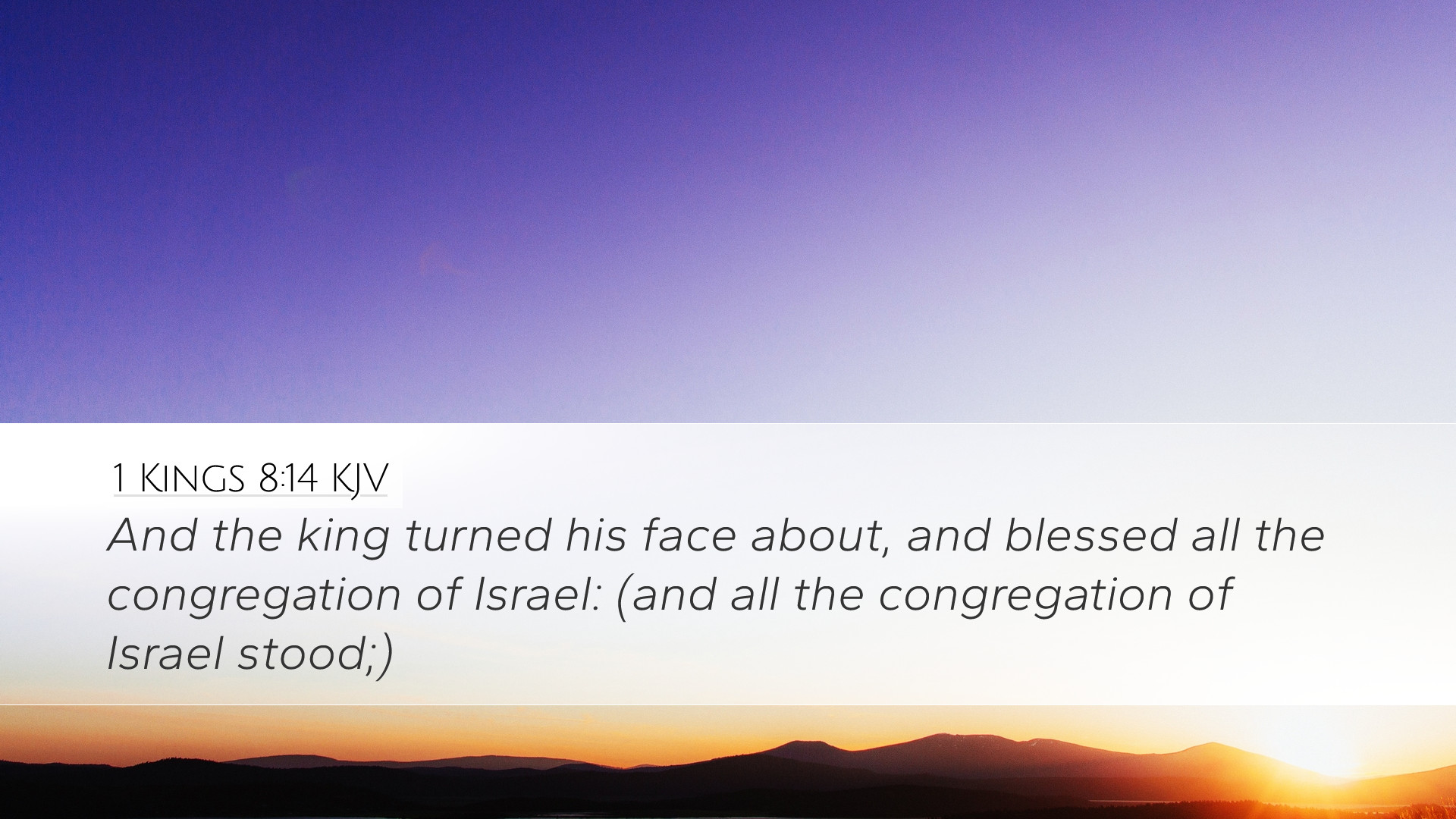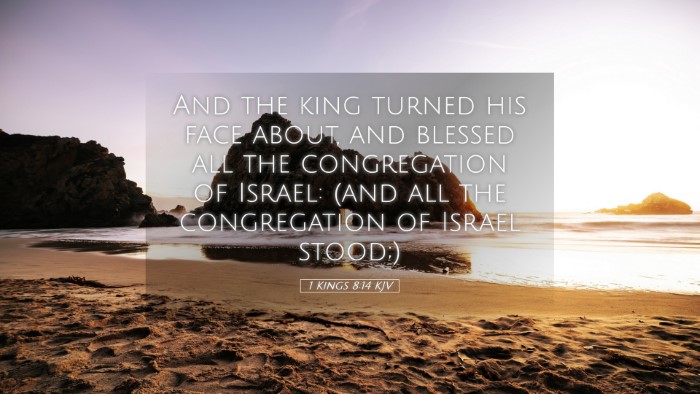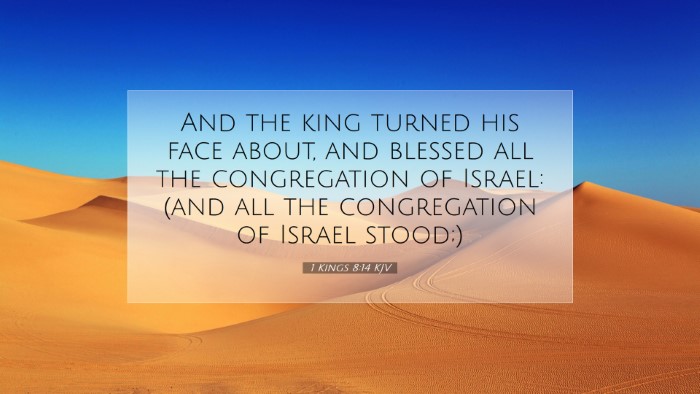Commentary on 1 Kings 8:14
Verse: "And the king turned his face about, and blessed all the congregation of Israel: and all the congregation of Israel stood."
Introduction
1 Kings 8:14 marks a significant moment in the dedication of Solomon's temple. It illustrates the king's authority, the people's reverence, and the sacredness of the occasion. This commentary draws from various public domain sources to provide a comprehensive understanding of this passage.
Contextual Background
This verse occurs during a pivotal event in Israel’s history - the dedication of the temple built by Solomon, which represents the physical manifestation of God's dwelling among His people. At this point, Solomon had completed construction and was ready to honor the Lord, emphasizing the spiritual and national significance of the temple.
Insights from Commentators
Matthew Henry’s Commentary
Matthew Henry emphasizes the ceremonial aspect of this moment. He writes about Solomon's turning to bless the people, showcasing a deliberate act of recognition of the people's importance in worship. Henry points out that blessed is the person who blesses others, reinforcing the role of leaders as mediators between God and the congregation.
Moreover, Henry highlights the unity of the congregation in the act of standing, which signifies respect and honor towards the king's words and God’s presence. This gesture also represents the Israelites’ collective acknowledgment of God’s sovereignty and their commitment to worship Him in the temple.
Albert Barnes’ Notes on the Bible
Albert Barnes draws attention to the physical posture of the congregation as a symbol of their submission and readiness to receive the king's blessing. He articulates that the action of standing reflects their eagerness to listen and participate in this sacred moment.
Barnes also connects this act of blessing with the covenant relationship between God and Israel. His commentary notes that Solomon’s blessing is rooted in the recognition of how Israel has been set apart as God’s chosen people. The king, by blessing the people, acknowledges his role as God’s appointed leader over them, reinforcing the sacred covenant established by their ancestors.
Adam Clarke’s Commentary
Adam Clarke provides a more textual analysis of the phrase "the king turned his face about." Clarke interprets this as a significant gesture that indicates Solomon's leadership and the divine approval of his actions. It symbolizes the king's connection with God and the people, emphasizing his role in mediating between them.
Clarke further notes the cultural significance of blessing in ancient Israel. He indicates that blessing as a practice conveys authority and goodwill; it was typically performed by family heads and leaders. Solomon’s act of blessing was an acknowledgment that all authority derives from God, and thus he calls upon the divine blessings for his people.
Theological Implications
The act of blessing in this verse demonstrates the theological concept that divine authority is mediated through earthly leaders. Solomon's position as King and High Priest illustrates the dual role of authority in Israel–both political and spiritual. This dual authority emphasizes the concept of God's governance through appointed leaders, a theme reflected throughout the scriptures.
Additionally, the congregation's response—standing—highlights the importance of community in worship. The unity of the people as they gather to receive Solomon’s blessing underscores the idea that worship is a collective act rather than an individual one. It serves as a reminder for contemporary congregations of the significance of community in worship practices today.
Practical Applications
- Leadership and Authority: Pastors and leaders should recognize their role in blessing the community and how their actions can set the spiritual tone for worship.
- Community in Worship: Congregations should be encouraged to actively participate in worship, understanding their collective role in honoring God and receiving His blessings.
- Respect for Divine Structure: Understanding the importance of submitting to God’s appointed leaders, while also holding them accountable to their roles within the church.
- Legacy of Worship: Reflect on how historical biblical events, like this moment in Israelite worship, can inform and shape modern practices in church settings.
Conclusion
1 Kings 8:14 is not merely a historical account of Solomon’s reign but also a profound theological reflection on the nature of blessing, leadership, and community worship. By considering the insights presented by Henry, Barnes, and Clarke, one can appreciate the depth and richness of the text, fostering a deeper understanding among pastors, students, and theologians alike. This examination encourages a return to the principles of collective worship and the divine authority held by spiritual leaders within the church.


